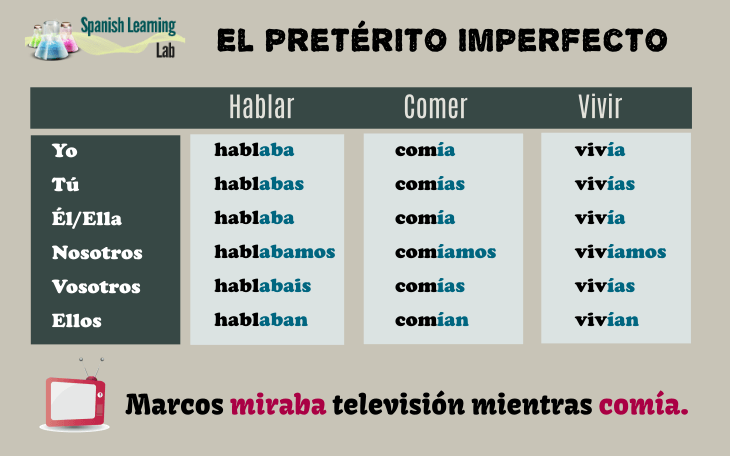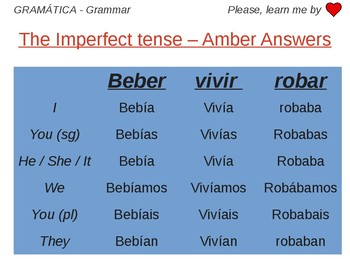

Two irregular verbs you will frequently come across are ‘ esse’, ‘to be’, and ‘ ire’, ‘to go’. He/she/it was hearing, he/she/it used to hear Imperfect tense of audio, audire, audivi, auditum (4) to hear Latin He/she/it was giving, he/she/it used to give Imperfect tense of do, dare, dedi, datum (1) to give Latin However, if the verb is in the fourth conjugation, you will need to add an ‘- e’ before adding the relevant ending. To form the imperfect tense, remove ‘- re’ from the infinitive form of the verb and add the relevant ending above.

The difference is that they are preceded by ‘ ba-’ and, in the first person singular, the characteristic ‘- o’ of the present changes to ‘- m’ in the imperfect. The endings for the imperfect tense are similar to those of the present tense. In each conjugation, the verbs share the same endings:Īn example of a first conjugation verb is: confirmo, confirmare, confirmavi, confirmatum (1) – to confirm.Īn example of a second conjugation verb is: habeo, habere, habui, habitum (2) – to haveĪn example of a third conjugation verb is: duco, ducere, duxi, ductum (3) – to leadĪn example of a fourth conjugation verb is: audio, audire, audivi, auditum (4) – to hear Latin verbs are divided into four groups, or conjugations. Just as with the present and perfect tenses, we need to know the conjugation a verb belongs to in order to make an imperfect tense. It is translated into English by ‘was/were’ + ‘-ing’ or ‘used to’.Įgo Lucie nuntium dabam – I was giving a message to Lucy This tense indicates an action which has gone on over a period time or has happened frequently. To describe a past action or state which is incomplete, we use an imperfect tense. It is used to describe an action in the past which is completed. This kind of past tense is called a perfect tense. We also looked at verbs in the past tenseĮgo Lucie nuntium dedi – I gave a message to Lucy You can use the pronoun (yo, él etc) if the subject of the verb is not clear from the context. In the imperfect tense the yo and él/ella/Ud. In Stage 1 we looked at verbs in the present tense.Įgo Lucie nuntium do – I give a message to Lucy To conjugate regular -ar verbs in the imperfect tense, add the following endings to the stem: él/ella/Ud.


 0 kommentar(er)
0 kommentar(er)
